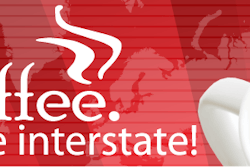The Chubb Group of Insurance Companies announced yesterday, Jan. 5, it has joined an initiative to combat cargo theft in the United States through improved information sharing between industry and law enforcement.
The CargoNet initiative involves a national database and secure information sharing network, as well as education and loss prevention services.
Pat Stoik, vice president of Warren, N.J.-based Chubb & Son, and Chubb’s global commercial inland marine manager, says, “Cargo theft causes significant direct and indirect losses throughout the supply chain, and left unchecked, it results in an economic drain to shippers, carriers and, ultimately, consumers. A national database will make it easier to spot cargo theft trends and develop effective loss prevention techniques. Today, it’s impossible to place an exact cost on cargo theft, which includes theft by land, sea and air.”
Law enforcement and industry officials estimate that the cost of cargo theft runs in the billions of dollars annually, and many losses are either underreported or unreported. Consumer electronics, food and clothing are the three most stolen types of cargo, a Chubb study found. Truckstops and rest areas are the most targeted locations for cargo thefts, accounting for more than one-third of all incidents, followed by modal yards and unsecured locations such as drop lots and motel and restaurant parking lots.

CargoNet, which will be managed by ISO and launched in early 2010, is intended to help prevent cargo theft and increase recovery rates through secure and controlled information sharing among theft victims, their business partners and law enforcement. The CargoNet national database and information sharing system will be managed by crime analysts and subject matter experts.
The system applies an integrated layered approach that exploits the weakness of cargo thieves at multiple points and includes integrated databases, a theft alert system, law enforcement task force investigative support through the National Insurance Crime Bureau, a tractor-trailer theft deterrence program, a Truck Stop Watch program, driver education and incentives, secondary market monitoring and interdiction, crime trend analysis, and training and education through an outreach program.









